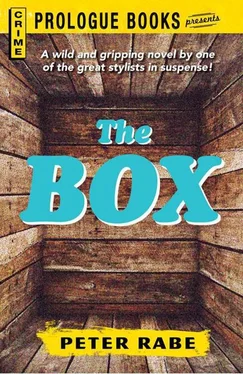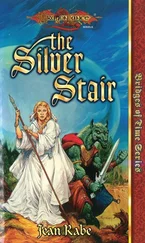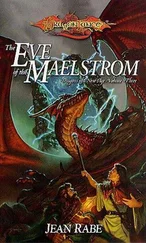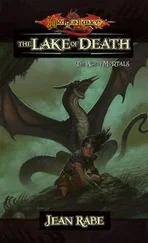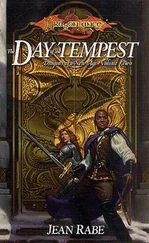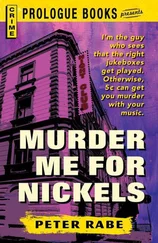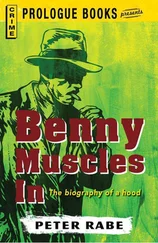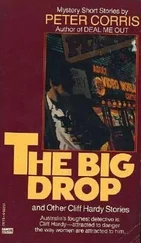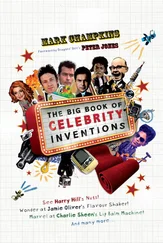Peter Rabe - The Box
Здесь есть возможность читать онлайн «Peter Rabe - The Box» весь текст электронной книги совершенно бесплатно (целиком полную версию без сокращений). В некоторых случаях можно слушать аудио, скачать через торрент в формате fb2 и присутствует краткое содержание. Жанр: Криминальный детектив, на английском языке. Описание произведения, (предисловие) а так же отзывы посетителей доступны на портале библиотеки ЛибКат.
- Название:The Box
- Автор:
- Жанр:
- Год:неизвестен
- ISBN:нет данных
- Рейтинг книги:5 / 5. Голосов: 1
-
Избранное:Добавить в избранное
- Отзывы:
-
Ваша оценка:
- 100
- 1
- 2
- 3
- 4
- 5
The Box: краткое содержание, описание и аннотация
Предлагаем к чтению аннотацию, описание, краткое содержание или предисловие (зависит от того, что написал сам автор книги «The Box»). Если вы не нашли необходимую информацию о книге — напишите в комментариях, мы постараемся отыскать её.
The Box — читать онлайн бесплатно полную книгу (весь текст) целиком
Ниже представлен текст книги, разбитый по страницам. Система сохранения места последней прочитанной страницы, позволяет с удобством читать онлайн бесплатно книгу «The Box», без необходимости каждый раз заново искать на чём Вы остановились. Поставьте закладку, и сможете в любой момент перейти на страницу, на которой закончили чтение.
Интервал:
Закладка:
“Well,” said Motta, and smiled into his cup. “Here we are.” He slurped coffee and said, “Ah!”
The dead TV screen looked gray and shiny and Cipolla’s skin looked like a dry leaf. A wind had started to whistle outside. If there’s fog, thought Quinn, I wouldn’t be surprised.
“Yessir,” said Motta. He looked like the most alive thing in the room. “I do miss the States some, now and then, but they sure never learned over there how to make coffee. Like it?
“Born and raised right here, Quinn,” said Motta, “but got took to the States when I was maybe three years old. Those were the big immigrant days. Everybody poor tried to get there.” Motta laughed. “Then, them who got rich got throwed out again. Hahaha!”
It wasn’t a stage laugh but sounded like real amusement.
“Yessir,” said Motta and put down his cup. “Made my own way over there. Just like you, huh, Quinn?”
“I didn’t really make it,” said Quinn.
“But you got deported just the same, huh, Quinn?” and Motta laughed again.
Can’t get sore at that kind of a laugh, thought Quinn. How can you get sore at Santa Claus?
“You heard about that,” said Quinn.
“Oh sure.” Motta folded his little hands on his stomach. “While you were asleep on the boat, Cipolla told me some, with the radio. Some of that TV over there,” said Motta, “is a short-wave. TV, of course, we ain’t got yet, down here. Not that I miss it.”
“I miss it,” said Cipolla.
“He’s not taking his deportation with deportment, like me,” said Motta, and the way he said the sentence, Quinn was sure he had used it before. “Not that I wasn’t low and all that when I first got here. I mean, it’s my home town and all but what’s that to me, after all these years and having made a life for myself in the States. I mean, Rome let’s say, okay. Naples. Okay. Palermo even. But no. They got to stick you with a home town that nobody even twenty miles from here ever heard of.” Motta sighed at the TV and then he nodded. “Well, then it turned out all right, after all.” He smiled and looked at Quinn from the rim of his coffee cup. “Gotta get your hand in, you know, Quinn? Like, I come down here and pretty soon it shows there’s a real set-up, a real opportunity. That’s what the States taught me, boy. How to spot opportunity. Get your hand in.”
He put the coffee cup down again-it had been empty for some time-and looked at Quinn with real interest. No smile, this time.
“That’s why you’re here, right, Quinn? To get your hand in.”
“Yes,” said Quinn. “That’s just about it.”
“You walked in over there and spotted a real opportunity. Right?”
“Stared me right in the face,” said Quinn.
“Good,” and Motta got up. “You and me, Quinn, maybe you and me can get along, huh?”
When he walked by Quinn he gave him a little pat on the shoulder, nothing overdone, just a friendly pat. Then he went to the bureau with all the vases and shepherd figures inside and took a cigar out of a box on top. Cipolla came up with a match, and while Motta got his cigar started he discussed things like, what time is it, time for an aperitif at the cafe, dinner still two hours off, and more small talk like that.
Here, thought Quinn, is a strange break, but a break perhaps, nonetheless. Old gangster deported from the States, running a little thing for the action of it, and to keep in his hand. Out of boredom. Boredom in a town like a handful of mud thrown against the side of a mountain, and twenty miles away nobody knows about the place, and Motta, by the terms of his deportation, must stay in his home town. Apt to drive a man crazy. Like being nailed into a box. Except that Motta has managed it differently, has kept his pink complexion, his easy ways, his good temper. This one, unlike Cipolla, thought Quinn, might well be the man with whom he, Quinn, could work. Finally. Quinn felt a small kick of excitement.
“So they gave you the trip around the world, huh, Quinn?” and Motta came back to the couch, sat down, puffed a blue cloud which smelled like clubs and good leisure.
“Yes,” said Quinn. “Except I got out ahead of schedule.”
“Must have been bad, huh?”
“I don’t remember too well, Motta. I think I’m glad I don’t remember too well.”
Motta shook his head slowly and watched a blue cloud make a belly and then turn into lace.
“I never thought much of that treatment,” he said. “Heard about it, of course, but, well-” and he shook his head again. “Who did it?” he asked next. “I been out of the picture in the States for a long time-how long is it, Cipolla?”
“Twenty-nine years,” said Cipolla. “On the fifteenth, next month.”
“Long time,” said Motta to the picture with the young couple who were his parents. “Who was you with, Quinn? It’s been a long time for me, lots of changes over there, but maybe I know.”
“His name is Ryder.”
“Ryder?”
“The numbers and unions. New York State, Pennsylvania, Ohio, and some Illinois.”
Motta shook his head. “There’s a new crowd, I guess.”
“Maybe Ryder’s isn’t much of an outfit,” said Cipolla. “I just been outa the States five years and I never heard of him. And I was in New York.”
“The big ones, Onion, don’t get seen by the little ones,” Quinn said to Cipolla. He was starting to feel hopped up.
“You must be an educated man,” said Motta, to change the conversation. “I mean, listening to the way you talk, things like that.”
Quinn shrugged and thought about his education.
“You been to college?” Cipolla asked.
“I’ll bet he was. What was you in?” asked Motta.
“Law.”
“Hey, that’s funny!”
“Yes. It was.”
“And from that maybe labor relations or politics and from there, well, you either get to be a politician or a crook, right, Quinn?” and Motta laughed again.
It was the same laugh as before, showing good humor, and Quinn did not mind it. He did not like to think about the subject they had been talking about, especially when Motta had guessed fairly well how he, Quinn, had drifted from one intention to another. Though it had not really been so much a matter of intention, but almost all drift. There had been no zest, not much zest at any rate, in his switch in direction or in his taking a new one. Except, of course, the matter of clawing his way ahead, in spite of Ryder. That had been the spice. If he and Ryder had been in the leather business, in the paper business, it would still have been the same.
“Well,” said Motta, “what say we go down to the cafe and talk business, huh, Quinn?”
Quinn had wondered when they would get to it and if Motta was stalling. But Motta simply did not care for speed; he had his evening routine, and business is discussed over a glass in a cafe.
“You notice,” said Motta and got up, “that I just lit this cigar, and if you know anything about cigar smokers who care about the product they smoke, you’ll have noticed they don’t like to walk around with the cigar in their mouth. Cipolla, find me the cane with the bone handle, huh?”
Cipolla left the room to look for Motta’s cane.
“I was saying,” and Motta smoothed his vest down in front, holding the cigar in his mouth, dead center. “Now, I’m the kind of cigar man I’ve been describing to you, Quinn, but here you see me walking out with more than half of the Havana still good.”
“Yes,” said Quinn, a little bored with the gentle small-talk.
“I do this,” said Motta, “in fact I do this every day this time of evening, because of the humidity.”
Cipolla came back with Motta’s hat, which was big-brimmed and light colored and had a black band-this hat, thought Quinn, no doubt goes on the head dead center-and also brought the cane with the bone handle. It was a beautiful, shiny handle, and there was a little silver band where the bone joined the wood. Maybe he’ll have forgotten about the cigar talk by now The hat went on the head dead center and the cane went in the left hand, because the right hand was for the cigar. Motta looked like somebody happily retired, modestly happy and entirely done with the rat race. They walked out to the street through somebody else’s apartment, the same way Quinn had come. Outside it was dark now and miserably damp.
Читать дальшеИнтервал:
Закладка:
Похожие книги на «The Box»
Представляем Вашему вниманию похожие книги на «The Box» списком для выбора. Мы отобрали схожую по названию и смыслу литературу в надежде предоставить читателям больше вариантов отыскать новые, интересные, ещё непрочитанные произведения.
Обсуждение, отзывы о книге «The Box» и просто собственные мнения читателей. Оставьте ваши комментарии, напишите, что Вы думаете о произведении, его смысле или главных героях. Укажите что конкретно понравилось, а что нет, и почему Вы так считаете.
